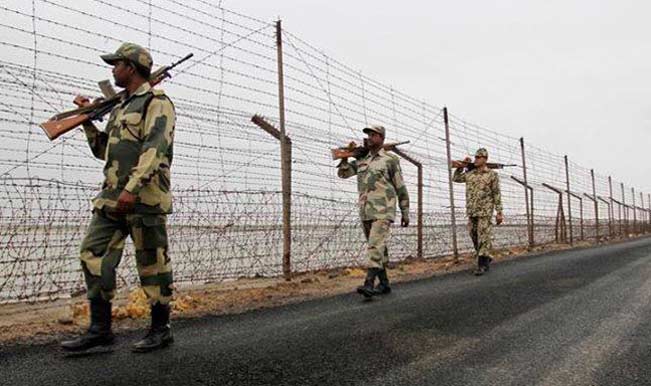
By Ali Raza
The history of incidents of line of control (LOC) is as old as the history of division of sub-continent. After the careful perusal of past and current unfortunate events of LOC, it can easily be deduced that contrary to the events and incidents that had happened in past, scope as well as agenda of current fateful events that are occurring at LOC is entirely different.
Pakistan’s role of being front-line state in the previous decade to curb terrorism is not hidden from anyone. Role, behavior and initiatives taken by Pakistan in past almost thirteen years manifests that it is determined to leave no stone unturned in bringing peace in the region and wants stability not only in the region but in whole world. Pakistan has lost thousands of precious life in sacrifice to give gift of peace to whole world.
On the other hand, India instead of paying tribute or acknowledging the sacrifices made by Pakistan in war against terror is continuously creating tension at LOC. In other words, it would not be wrong to mention that India is trying to instigate Pakistan for war that could ultimately bring the whole region to the verge of instability as both the countries are having nuclear arsenals.
Pakistan is playing the role of frontline soldier against terrorism in its own territory. In pursuance of this war against terrorism Pakistan has already faced a lot of criticism from its own people. On the other hand, due to this war against terrorism Pakistan has faced, and is still facing huge loss in various domains like economy, technology, education, health etc. It can be said that due to this war, Pakistan, after actively fighting over a decade’s period, is exhausted, and is not that much powerful and strong as it was before the initiation of war.
Instead of extending its support and cooperation to Pakistan to curb the emerging threats from terrorists, India is continuously playing blame game against Pakistan, and appears to be busy in opening new corridors of tension for Pakistan. This knavish as well as immature behavior of India is not only detrimental to the security and peace of the region, but also lethal for the peace of world. The international community has also become a silent observer on this sensitive issue, and giving their silent consent to the hostile acts of India, which ultimately would be proved morbid for stability of the region and disastrous for the global peace.
It is an open secret that India with respect to development is far ahead from Pakistan. India in almost every discipline has taken lead from Pakistan in such areas as economy, technology, military and developments. Keeping in view this elevated status of India, question arises in one’s mind as to why India is putting itself on the path of tensions rather than treading on path of peace, talks and negotiations? The answer to this question could be the following.
India knows that in one and foremost manner Pakistan is competing with India in nuclear capability. And Pakistan has also already taken a firm stance against India for the sake of its defense that it will use its nuclear arsenal in case of interventions, both nuclear or conventional. The circles responsible for ensuring the security of India are disturbed due to this declaration and are desirous of testing the credibility of the statements given on behalf of Pakistan, and are eager to assess the magnitude of response from Pakistan’s side to evaluate that can Pakistan employ its nuclear weapons in case of conventional war between these two states. On the other hand, India is also not sure about the level/standard of conventional intervention from its side that would compel Pakistan to launch its nuclear weapons. It could not be overruled that by the virtue of Pakistan’s “Deterrence Policy”, India in real terms has been deterred. Therefore, it can be analyzed that India is in real quest to test “Deterrence Credibility” of Pakistan, and the unfortunate events that are being happened at LOC are aimed to unveil the policy of opacity adopted by Pakistan regarding its nuclear arsenals.
In the region, Pakistan and India are having the status of nuclear states. Heavy responsibility lies on these two states to ensure the peace and stability of region. But, more responsibility lies on India to ensure the betterment, wellbeing, peace and stability of the region keeping in view its size, status and development. India should also be mindful of the fact that it would not be appropriate to bring whole the region on the edge of instability for the sake of its quest or whatever other reason. India should also realize the pain and agony through which Pakistan is passing to bring peace for whole world, and refrain from escalating tension at LOC.
International community should also feel and consider the sensitivity of the issue, and must not behave like a passive observer. Tribute must be paid to Pakistan for the extra-ordinary measures that Pakistan has taken, and is still taking in the war against terrorism. Considering the precious sacrifices that have been given by Pakistan in war against terrorism, the international community should take such measures to refrain India from committing irresponsible actions against Pakistan that could be disastrous to the security and stability of the region. On the other hand international community should also be mindful of the fact that Pakistan is only state in region, which is fighting against terrorism not only for its own sake but to ensure the peace at global level.




